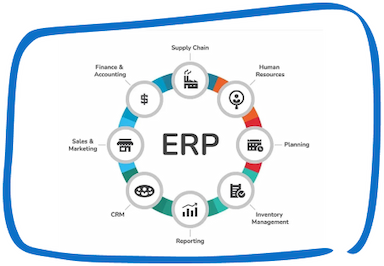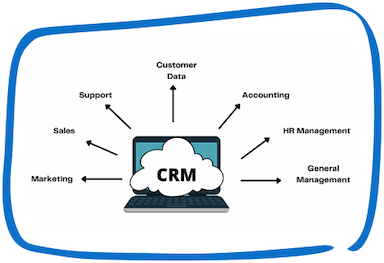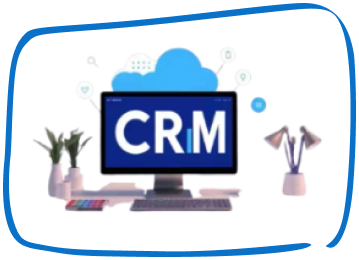Property taxes and related fees in the UAE are essential components of real estate ownership and investment. Plus, understanding these financial obligations helps investors make informed decisions and maintain compliance with local regulations. The UAE's tax structure is notably different from many other countries, making it an attractive destination for property investment.
In this article, let us see in detail about:
- Property Transfer Taxes and Registration Fees
- Annual Property Taxes and Service Charges
- Value Added Tax (VAT) on Commercial Properties
- Municipality Fees and Utility Charges
- Tax Benefits for Investors
- Investment Considerations
- Digital Solutions for Property Management
- Cost-Benefit Analysis of Property Management Software
- Emergency Response and Support Services
Property Transfer Taxes and Registration Fees
Property transfer taxes and registration fees are crucial when it comes to property transactions in the UAE. Dubai Land Department imposes a 4% property transfer fee on the total value of the property which both buyer and seller usually bear. Besides, there are also administrative fees and charges that vary based on the property type and the area where it is located.
Optimize Your Real Estate Workflow
Manage listings, sales, and tasks effortlessly with our software.
Effective real estate transaction management tools include real estate software solutions. Property management programs take care of all the costs incurred and ensure proper record-keeping and payment of all the charges before the deadline. This maximizes efficiency and minimizes the likelihood of incidences that can lead to non-compliance.
Annual Property Taxes and Service Charges
UAE’s yearly property charges policy is quite different from other countries. Property owners do not pay property taxes rather, they pay service charges and maintenance fees. These charges are around AED 10 to AED 30 per square foot and are influenced by factors such as location, building grade, and facilities offered.
Management of these payments allows these payments to be made simply through the use of property management software which is targeted at the tenant. There is also a possibility of providing financial record-keeping for the properties owned as well as ensuring that there are no records of any properties owned that are unaccounted for.
Value Added Tax (VAT) on Commercial Properties
Issues for property owners in the UAE have also been brought about by the implementation of VAT. All commercial properties will charge 5% VAT on the sales, but residential properties are fairly free from such taxes. Developers are exempted from paying VAT on the first sale of a residential property after construction where the developer can register for input VAT but does not charge buyers any VAT.
In property management systems, the market contains solutions that make the management of value-added tax much easier and compliant with the law. This provides commercial property owners and developers the capability of controlling the value-added tax in their operations and lodging correct returns for the same.
Municipality Fees and Utility Charges
Understanding the municipality charges constitutes another aspect when owning a property in the UAE. Such charges differ from one emirate to the other, for instance, in Dubai, residential leaseholders are billed 5% of their annual rent in the DEWA bills. Tenants renting out commercial property usually pay a higher percentage of 10 % of their annual rent.
The introduction of appropriate property management software enables the owners and the tenants to monitor these fee changes easily without any challenge. Additionally, it encompasses auto computing and suggestions on payments to be made as well, which helps in clearing dues on time without causing much hassle.
Tax Benefits for Investors
The UAE tax system offers significant advantages to property investors. The fact that there is no personal income tax and a capital gains tax makes these markets not only favorable for domestic investments but also foreign ones. On top of that, the simple structure of charging makes it easier to plan finances and investment approaches.
There are real estate software applications that have taken an important role in the enhancement of the aforementioned benefits. The property's solutions enable investors to monitor their profits along with costs and organize all the records of such activities.
Documentation and Compliance
Being organized is the best way to come up with a solution to the property regulations in the country of UAE. Every transaction that involves property has to be documented properly including the rental income, services, and all the fees charged. Because of this requirement, tenant management software has been one of the must-have applications for many property owners and property managers.
A full-service real estate management system such as offers features for the generation of routine documentation enabling all records to be created and kept on file. Additionally, it assists in the preparation of relevant reports for compliance with the law or for tax assessment purposes.
Investment Considerations
Making informed investment decisions requires a thorough understanding of all associated taxes and fees. The UAE's property market offers attractive opportunities, but success depends on proper planning and management. Taking out appropriate property management software helps investors track their expenses and returns effectively.
Investors use property management software in particular to:
- Effectively supervise and control several houses and buildings under real estate management
- Conduct all payments and tax remittances including their records
- Adhere to operational requirements of the governments
- Prepare reports on accounts in depth
- Deal with clients who are renting properly
Digital Solutions for Property Management
Digital transformation is the ultimate remedy to the administration of the tax on properties and other payments in kind in the UAE industry. Not only this, it allows the property holders to see how much money they have invested and how much they owe at any given moment.
This is where fully integrated property management and tax management solutions come in handy: they facilitate the management of a real estate business and help with the associated taxation.
In particular, modern property management software includes specific features that address the needs of the UAE, such as:
- Automated estimation of service charges as well as other fees
- Storage and access to digital documents
- Instant financial reporting and analysis
- Payments processing facilities
- Support for currencies other than the UAE for foreign investors
Cost-Benefit Analysis of Property Management Software
Real estate management solutions may require capital expenditures, however, these are justified for the benefits that accrue over time. The cost of property management software ranges from AED 5000 to AED 15000 on average in one year depending on the features and the properties under management. In addition to this, these systems have reduced administrative errors and enhanced productivity usually resulting in self-sustaining systems.
Streamline Your Real Estate Business
Boost efficiency with tools for client management and automation.
By employing a full-fledged real estate management system, property owners can cut down on the business's operational costs. This incorporates reduced labor requirements, lowered administrative costs, and enhanced budgeting in the business.
Emergency Response and Support Services
In the UAE, property management is often dynamic and calls for quick action in various scenarios. Well-designed tenant management software contains features for emergency preparedness that assist property owners and managers in dealing with urgent circumstances optimally. Most importantly, it also gives a very organized way of monitoring and addressing property concerns.
The implementation of these systems typically includes:
- 24/7 emergency support access
- Automated notification systems
- Issue tracking and resolution monitoring
- Vendor management capabilities
- Maintenance scheduling and tracking
Conclusion: Market Outlook and Planning
The real estate sector in the UAE is still developing, with newer laws and policies being enacted frequently. For any stakeholder who aims to succeed in the industry for the long run, it is important to know what the tax liabilities are at the present time as well as what the tax system is likely to be in the future. Furthermore, understanding the changes in the market dynamics and the accompanying regulations assists investors in making the right market choices.
The demonstrated policies of the UAE on property tax and other associated fees have made it possible for anyone to invest in luxury estates. Availed by luxurious offices in Dubai Marina, effective property management software, and printing and keeping the bills in order, are the best remedies to owning and investing in the real estate market in the United Arab Emirates.
Speak with Our Team!
4.9 Stars
1k+ reviews on






